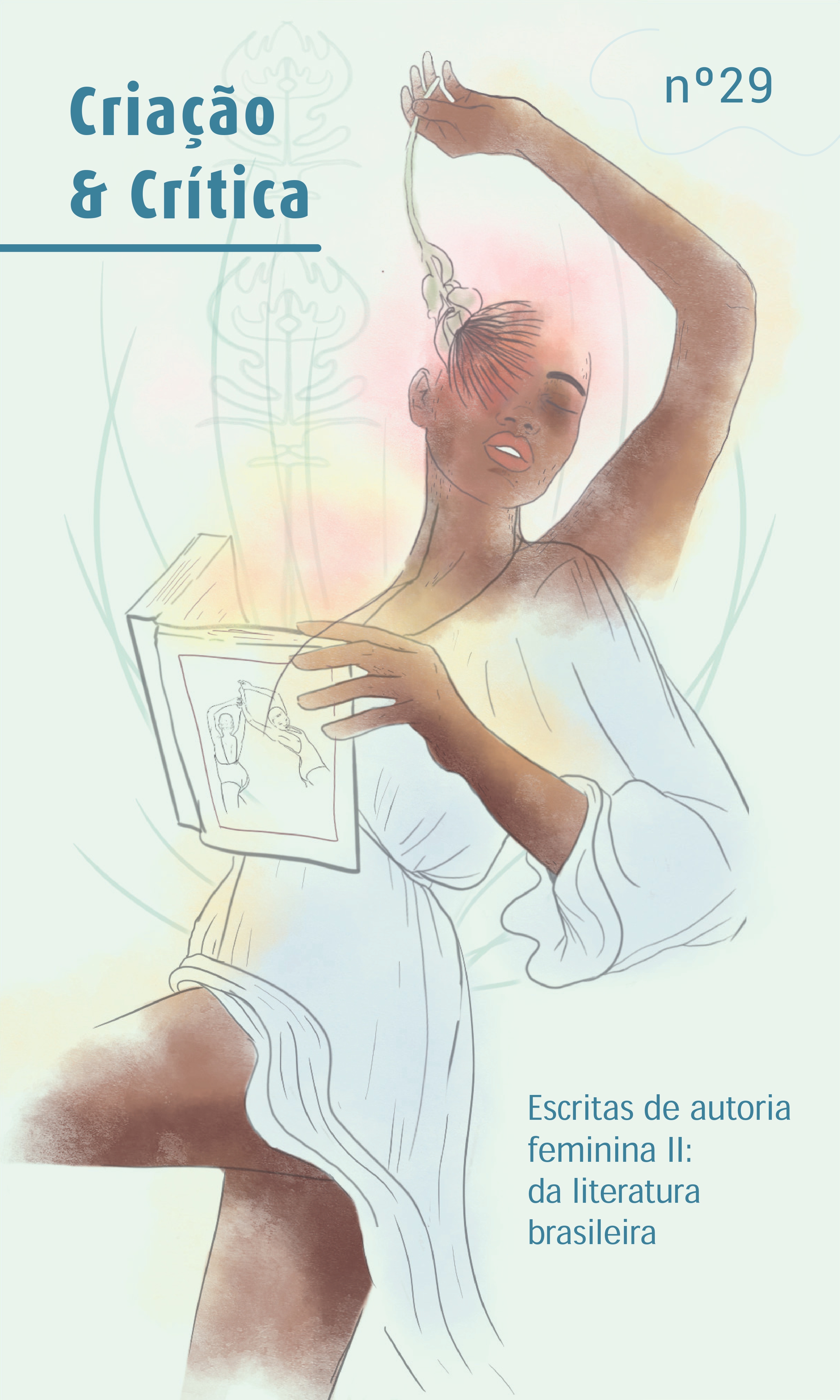Women in Helena Solberg's cinema: between multiple looks and voices, documentaries A Entrevista (1966) and The Double Day (1975)
DOI:
https://doi.org/10.11606/issn.1984-1124.i29p161-180Keywords:
Documentaries, Helena Solberg, Latin America, Women, IdentitiesAbstract
The attempt to establish an evolutionary line in compared perspective in the analysis of the identities and experiences of women, based on the documentaries A entrevista (1966) and The double day (1975), by Helena Solberg, is also the attempt to apprehend two distinct moments from these works. Its author lived the experience of looking and diving in Latin America only when outside of Brazil, after the AI-5, and already living in the North American capital, Washington. However, when following the trajectory of workers in Latin American cities and villages, in factories or in mining, the strength and multiplicity of being-women are emphasized. Her filmography then definitely turns to social issues that accompany her until recent productions, which keep the choices focused on women, perhaps, her main theme.
Downloads
References
A ENTREVISTA. Direção: Helena Solberg. Brasil, 1966, p&b, 19 min.
ANZALDÚA, Gloria. “Falando em línguas: uma carta para as mulheres escritoras do terceiro mundo”. Estudos feministas, Florianópolis, ano 8, 2000.
BARRANCOS, D; ARCHENTI, N. “Feminismos e direitos das mulheres na Argentina: história e situação atual.” In: BLAY, E.; AVELAR, L. (Org.). 50 anos de feminismo: Argentina, Brasil e Chile. São Paulo: Edusp, 2017.
BETTELHEIM, Bruno. A psicanálise dos contos de fadas. São Paulo: Paz e Terra, 2007.
BOSI, Alfredo. Dialética da colonização. São Paulo: Companhia das Letras, 2006.
CASTILLO, Ana. MORAGA, Cherríe (Org). Esta puente, mi espalda: voces de mujeres tercermundistas en los Estados Unidos. São Francisco: Ism Press, 1988.
CÉSAIRE, Aimé. Discurso sobre o colonialismo. Lisboa: Livraria Sá da Costa, 1978.
CINECLUBE DELAS. Retrospectiva Helena Solberg: debate sobre os documentários A Entrevista e A Nova Mulher. Disponível em: https://cineclubedelas.wordpress.com/2018/03/13/retrospectiva-helena-solberg-debate-sobre-a-entrevista-e-a-nova-mulher/ Acesso em: 16.04.2020.
FANON, Frantz. Os condenados da terra. Rio de Janeiro: Civilização Brasileira, 1968.
FRIEDAN, Betty. A mística feminina. Petrópolis: Editora Vozes limitadas, 1971.
GONZÁLEZ, Lélia. “A categoria político-cultura de Amefricanidade.” Revista Tempo Brasileiro. Rio de Janeiro, 92/93; 47/68, jan.-jun., 1988.
LISPECTOR, Clarice. “Amor”. In: Laços de Família. Rio de Janeiro: Rocco, 1998.
LOBATO, Monteiro. Negrinha. Bauru: Edusc, 2000.
LOURO, Guacira Lopes. Sexualidade, gênero e educação. São Paulo: Vozes, 2003.
LUGONES, María. “Colonialidad y género”. Tabula Rasa. Bogotá, n. 9, pp. 73-101, 2008.
MULHERES DO CINEMA BRASILEIRO. Entrevista, fev. 2005, 8ª Mostra de Cinema de Tiradentes. Disponível em: https://www.mulheresdocinemabrasileiro.com.br/site/entrevistas_depoimentos/visualiza/193/Helena-Solberg. Acesso: 20.04.2020
PERRONE-MOISES, Leyla. “Paradoxos do nacionalismo literário na América Latina”. In: Estudos avançados, 1997, vol. 11, n. 30, pp. 245-259.
TAVARES, Mariana. Helena Solberg: trajetória de uma documentarista brasileira. 2011. Tese. 282 f. (Doutorado em Artes). Programa de Pós-Graduação em Artes da Escola de Belas Artes da Universidade Federal de Minas Gerais, Belo Horizonte, 2011.
THE DOUBLE day. Direção: Helena Solberg. Estados Unidos, 1975, cor, 53 min.
THE EMERGING Woman. Direção: Helena Solberg. Estados Unidos, 1974, p&b, 40 min.
SIMPLESMENTE Jenny. Direção: Helena Solberg. Estados Unidos, 1977, cor, 32 min.
Downloads
Published
Issue
Section
License
Copyright (c) 2021 Meire Oliveira Silva

This work is licensed under a Creative Commons Attribution-NonCommercial-ShareAlike 4.0 International License.
Authors who publish with this journal agree to the following terms:
- Authors retain copyright and grant the journal right of first publication with the work simultaneously licensed under a Creative Commons Attribution License that allows others to share the work with an acknowledgment of the work's authorship and initial publication in this journal.
- Authors can enter into separate, additional contractual arrangements for the non-exclusive distribution of the journal's published version of the work (e.g., post it to an institutional repository or publish it in a book), with an acknowledgment of its initial publication in this journal.
- Authors are permitted and encouraged to post their work online (e.g., in institutional repositories or on their website) before and during the submission process, as it can lead to productive exchanges, as well as earlier and greater citation of published work (See The Effect of Open Access).



